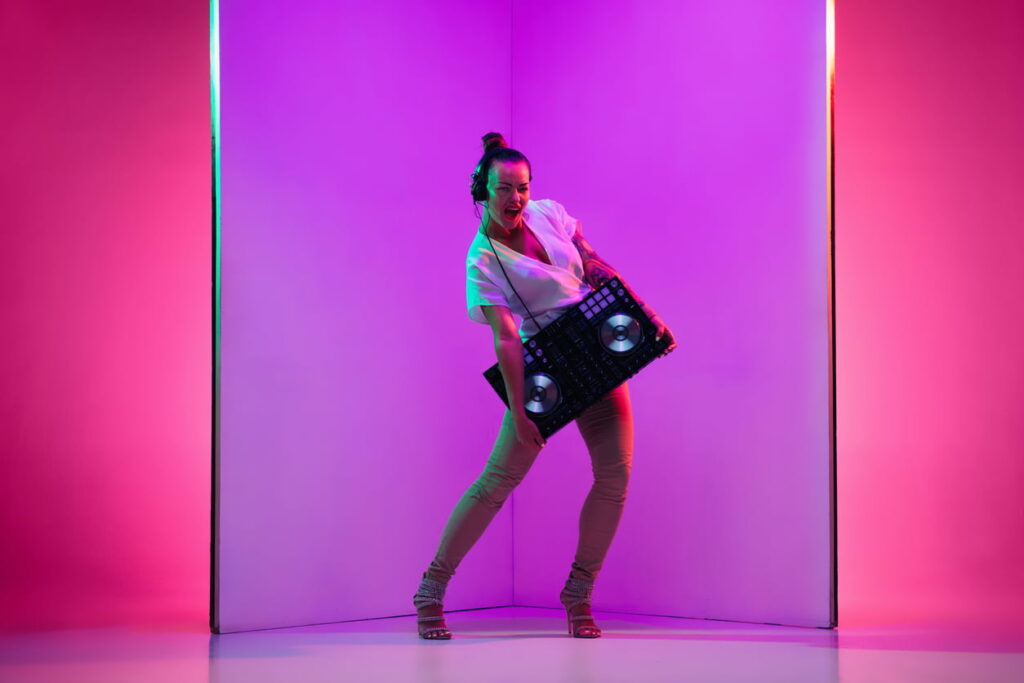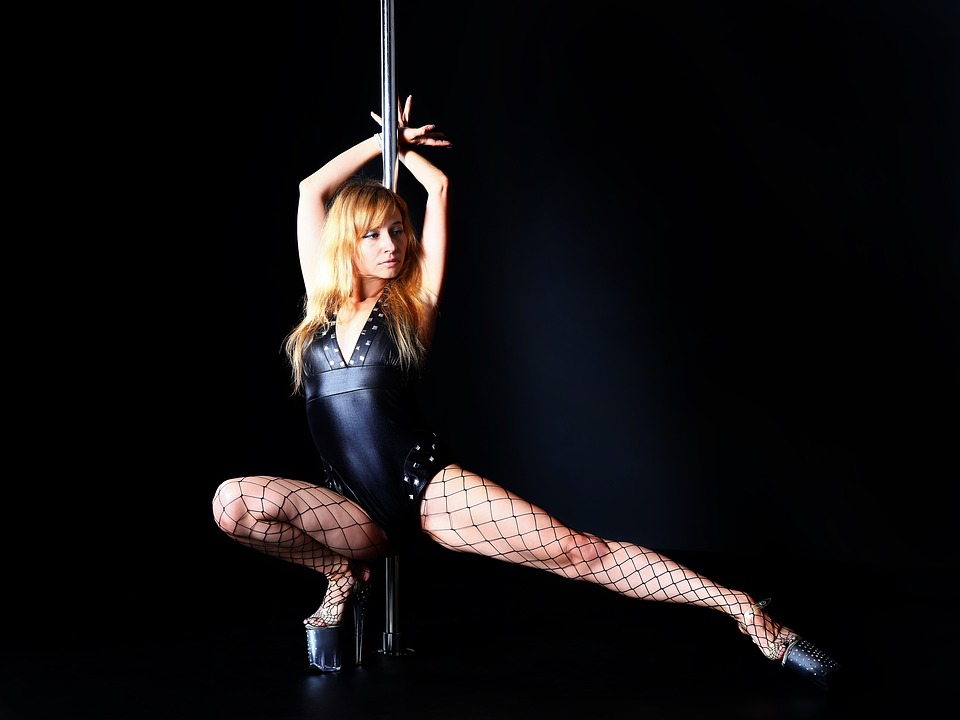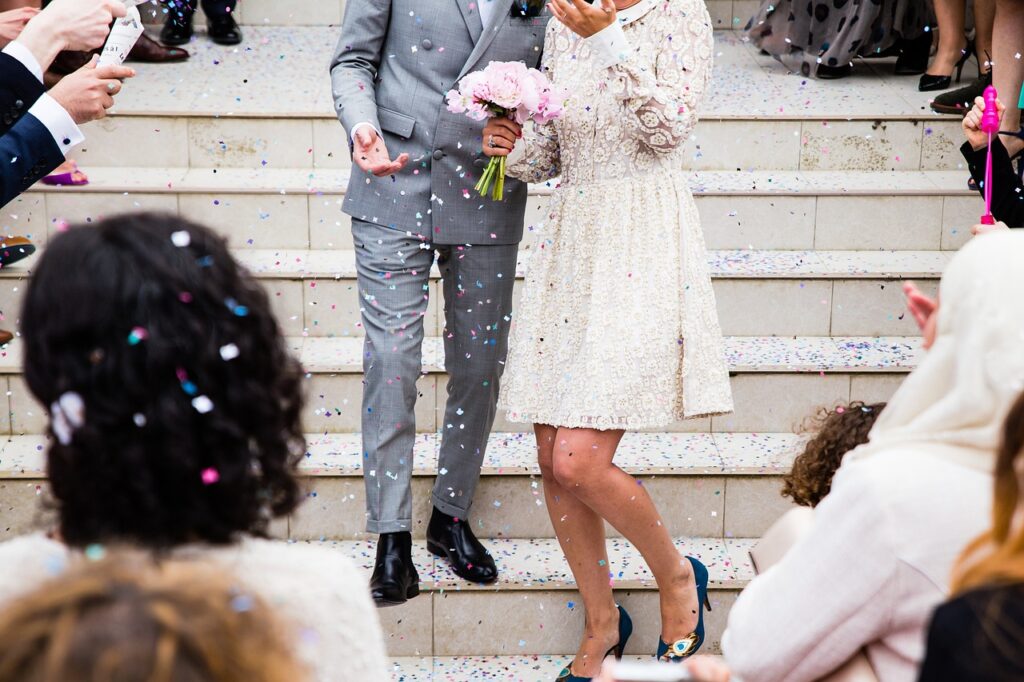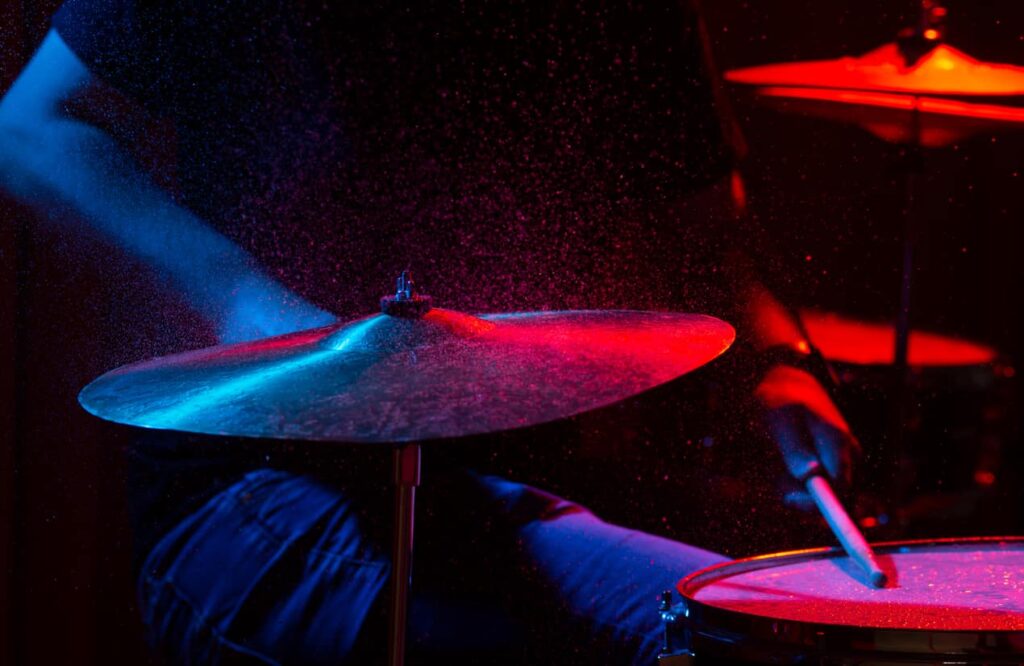
Summary
Welcome » Welcome » Exercises to improve » Sense of rhythm: how to improve it?
Sense of rhythm: how to improve it?
Summary
What is the sense of rhythm?
A sense of rhythm can be considered a skill that needs to be worked on to improve. So, there are several ways such as singing, playing an instrument, following rhythmic exercises or simply listening to music.
Definition
Rhythm is one of the basics of music. In fact, it is defined as the music speed, cut into repetitive beats which easily stay in mind. It can be compared to words: cadences, paces, etc.
We are surrounded by different rhythms every day, whether it is the beating of our heart, applause or the ticking of a watch.
Thus, the sense of rhythm is the ability to analyze these different beats.
To know if you have a sense of rhythm, you just need to analyze whether you can type in rhythm according to the music you listen to. If you do it mechanically without thinking, then it's a good start!
Rhythmic deafness
It is important to distinguish two notions: lack of rhythm and the rhythmic deafness. Indeed, the latter is, like color blindness for example, an anomaly that is observed in certain people.
According to researchers, people with rhythmic hearing loss have difficulty identifying rhythm of music as well as the tone. It is therefore difficult for them to synchronize their movements to the rhythm heard.
We do not yet officially know the origins of rhythmic deafness but it is linked to internal biological rhythms. Indeed, a person affected by rhythmic hearing loss will have difficulty synchronizing their movements according to their environment.
For example, when you walk with someone who walks faster than you, you will, without realizing it, adjust your pace according to theirs. In case of rhythmic hearing loss, you will not have this reflex.
Contrary to its name, it is not a lack of hearing but more of a synchronization deficit. A study is currently underway to try to find out more.
Why develop a sense of rhythm?
Developing your sense of rhythm allows you to gain self-confidence on a daily basis and not dread moments or prevent you from starting an activity (dancing, singing, musical instrument, etc.).
Dance to the rhythm
Having rhythm under your skin brings you many facilities if you wish to start dancing.
Indeed, the more your sense of rhythm is developed, the more you will have easy to dance on time. You will need to calculate your movements much less because you will perform them automatically, simply by listening to the music and without thinking about the different times. Learning choreographies will therefore be less laborious for you and you will save precious time.
You will also have more confidence in yourself to let go and give your all during your choreographies. You can add the interpretation to transmit moreemotions to your audience because dance is a language!
Be able to improvise
L'improvisation is a challenging exercise for everyone, even people with rhythmic skills. He asks for creativity but alsolisten to be able to offer choreographies or even texts consistent with the music.
You will feel more comfortable and freer in your movements and your words !
If your sense of rhythm is not developed, don't worry, nothing is lost, you just have to work!
Progress faster
If your sense of rhythm is developed, you will have an easier time progressing in dancing as well as in singing or music more generally.
Indeed, for dancing, your brain will only have to listen to the music and will therefore not be cluttered by other thoughts. L'automating steps, choreography, words, etc. will make you progress at high speed.
How to improve your sense of rhythm?
As said previously, not having a sense of rhythm is not inevitable. So you can work on it to develop it! here are some advice that we suggest.
Listen to music
This may seem obvious, but the more you listen to music, the more your brain will get used to hearing different rhythms.
To begin, put your favorite song and try to understand the tempo, then his pace. Once you've listened to it once, start again and tap your foot with each beat that you hear. Even if it's a song you know by heart, the analysis will allow you to go further!
Vary the styles of music and analyze the different rhythms: feel the pulsations and reproduce them using your hands for example.
Clock exercise
L'clock exercise consists of making you work on the notion of slow pace, silence and space in time. This will make it easier for you to learn the fast pace. Indeed, a clock counts 60 bpm (beats per minute) because 1 minute represents 60 seconds.
For the exercise, you must stand in front of a clock with a second hand. Once you are well installed, count one minute while closing your eyes. When you get to 60, open your eyes and see if the needle has completed its full turn or if you are late or early.
Repeat the exercise as many times as you want! You can of course space out the exercise and do it a little every day.
Sing
THE singing is also a very good exercise to improve your sense of rhythm. Putting your voice to the music is not an easy exercise but it is essential for be in perfect harmony with the instruments and melody.
Because yes, having a beautiful voice is important but that's not all. Singing off-beat gives the impression of singing out of tune... and it's the same thing in dancing!
To begin, you can decipher the music you want to sing to to analyze the beats, tempo, phrasing and groove.
Most of the time, the songs are in 4 stroke : 2 highlights And 2 weak beats. THE tempo is considered the speed of a song, that is to say the rate at which the beat goes. THE sentence defines the punctuation and rhythm of the song which is fixed on the tempo. Finally, the groove is in a way the interpretation given to his song.
One of the solutions is to register, to be able to listen to each other and understand areas for improvement.
You can also call on a private teacher to take singing lessons and guide you towards progress!
To dance
To improve your pace, dance is one of the best ways! As with singing, put on your favorite song and let yourself be carried away by the music. Mark the different highlights of the music with movements and create your own choreography.
During your first attempts, your choreographies will certainly not be in rhythm all the time and that's totally ok! Film yourself or look in a mirror to see your movements in the moment. You can correct them later if necessary. L'self-criticism is your best asset!
To find out more, do not hesitate to read our article to learn to dance alone.
Play a musical instrument
THE notes, THE tempo, there coordination of your breath or hands on music to respect a score are the keys to developing your rhythm.
When you learn to read sheet music, you will understand the bars and beats and will be able to play according to the melody.
Piano, guitar, percussion, trumpet, violin, etc.. all the instruments are intended to help you progress in terms of rhythm.
THE metronome is your ally! For a first exercise, turn it on and listen for the clicks, then once you have integrated the rhythm it makes, play a note for each click you hear.
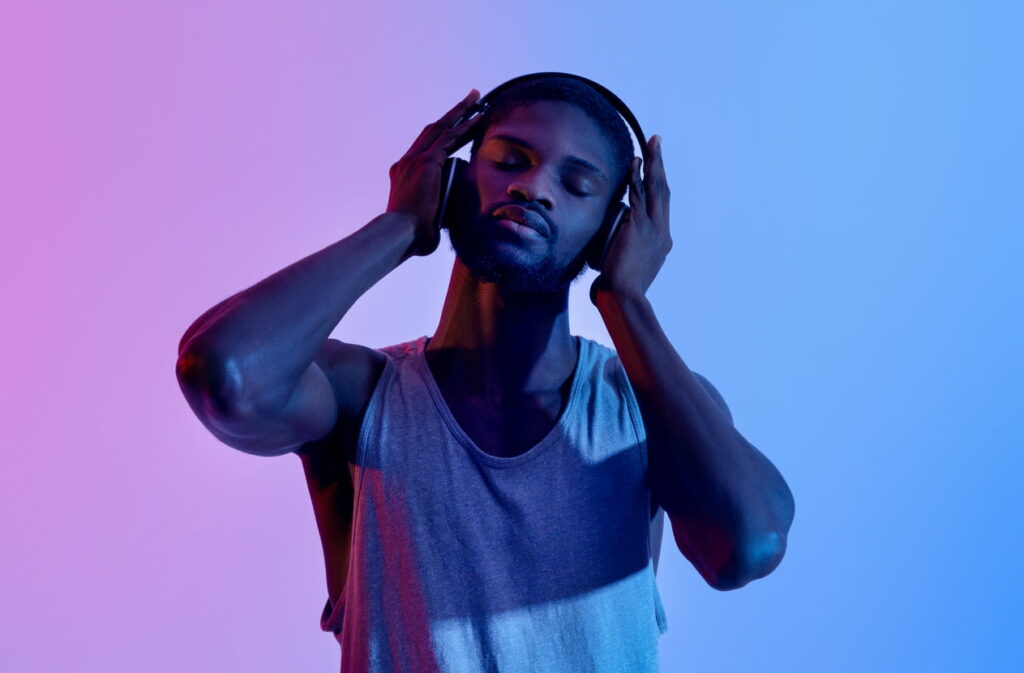
What you should remember
THE sense of rhythm is not an innate fact and can be worked on in people who wish to develop it. It is indeed present in our daily lives without us even paying attention to it!
For this, several techniques are possible:
- listen to music : listen to your favorite songs differently!
- do the clock exercise : count 60 seconds without making a mistake
- sing : learn to place your voice over a melody
- play a musical instrument : this also allows you to work on your coordination and therefore train your brain
The only secret is the practice ! The more you practice listening to and dissecting different rhythms, the more your brain will condition itself. You will see a real progression.
Discover dance at DECIBEL®
Do you want to develop your sense of rhythm while having a good time? Come discover dance at DECIBEL® !
To do this, immerse yourself in your bubble and let off steam in our classes. dance workout. On the program: a course in 50 minutes, hosted by one of our coaches, of the light effects and rhythmic playlists !
You will be able to work on your sense of rhythm and your dance steps but also strengthen your body.
To test it is to adopt it!
Read also
follow us
on instagram
Follow our news,
take advantage of our tutorials and participate to our
contests!
BREAKING NEWS!
Receive our newsletter.
